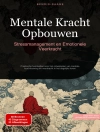As individuals engaged with children and those around them, educational psychologists enter a multitude of systems and relationships with the intention of helping. This often involves working in a context of confusion, conflict and creativity, a dynamic tension which is reflected in the chapters of this book.
Designed to give both students and practitioners access to the experience of engaging with a dynamic unconscious,
this volume investigates some of the key tenets and principles of psychoanalytic theory and demonstrates ways in which
educational psychologists have used both theory and practice in their roles.
Each chapter approaches a recognisable activity from educational psychology practice and provides an account of how psychoanalytic theories about our unique inner worlds and our unconscious processes can inform and enrich these interactions.
Cuprins
Acknowledgements
Introduction
About the authors
Foreword by Dr Mark Fox
Part I Orientation
1. Psychoanalysis and educational psychology: context, theory and challenges
Part II Theory to practice
2. The use of psychoanalytic concepts in educational psychology practice
3. Thinking matters: how can Bion’s theory of thinking help educational psychologists think about the task of formulation?
4. What’s yours and what’s theirs? Understanding projection, transference and countertransference in educational psychology practice
5. The classroom-in-the-mind: psychoanalytic reflections on classroom practice
Part III Assessment
6. Educational psychological assessment: a psychoanalytic approach
7. The use of projective techniques in educational psychology assessments
Part IV Consultation and supervision
8. A distinctive helping relationship: historical and contemporary perspectives on psychodynamic thinking in consultation
9. The use of self in consultation: data from the ‘total situation’
10. Feelings, relationships and ‘being held’: the experience of psychodynamically informed supervision
Part V Working with groups
11. Reverie groups: space, free association and the recovery of thought
12. Providing ‘good enough care’: work discussion groups as a reflective space for designated safeguarding leads
Part VI Organisational perspectives
13. Coaching school leaders: a psychoanalytic approach
14. Social defences: managing the anxiety of work
Part VII Postscript: widening the horizon
15. The psyche as a complex system: insights from chaos theory
References
Index












